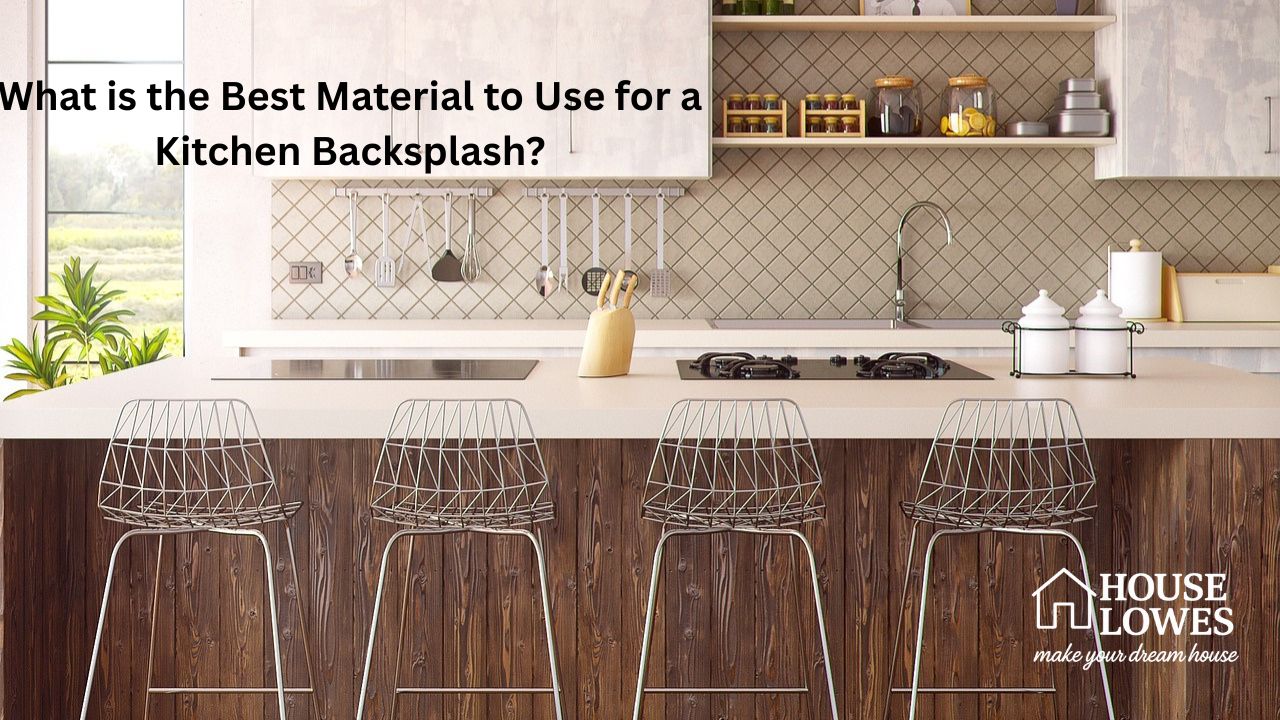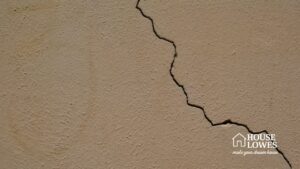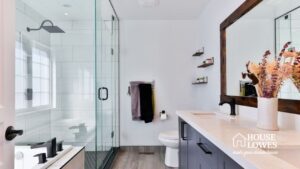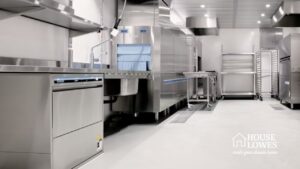When it comes to designing a stylish and practical kitchen, choosing the right backsplash material is a crucial decision. A well-chosen backsplash not only protects your walls from splashes and stains but also ties the entire look of your kitchen together. With so many beautiful options available, finding the perfect material can feel a little overwhelming.
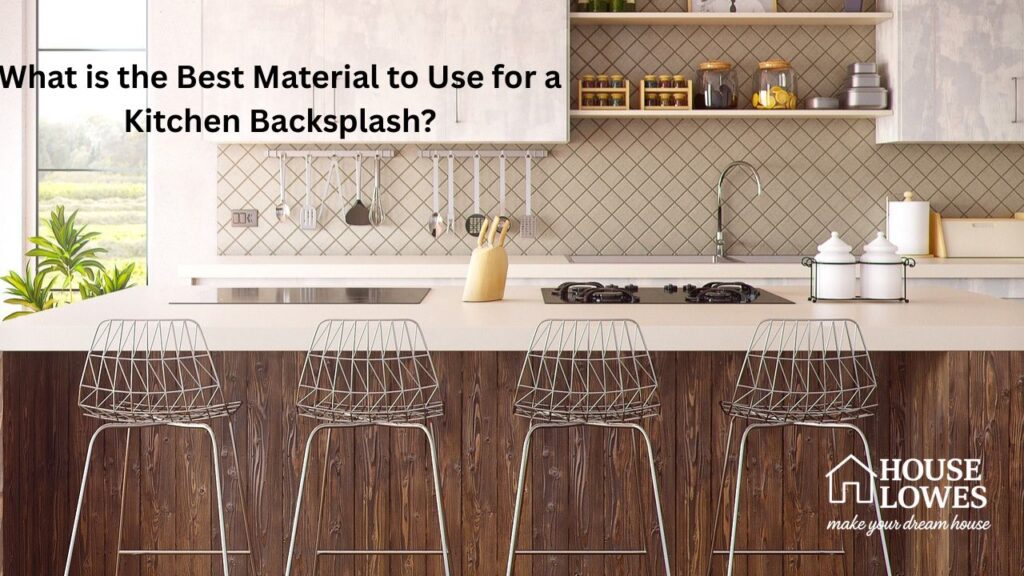
Your choice will depend on a variety of factors – from your budget and personal style to how much maintenance you’re willing to take on. Some materials are incredibly low-maintenance, while others demand a little more care. You’ll also want to consider durability, ease of cleaning, and how your chosen material complements your worktops and cabinetry.
Whether you are planning a full kitchen renovation or just want to refresh your space with a new backsplash, understanding the pros and cons of different materials will help you make the right decision. Let’s take a closer look at some of the best kitchen backsplash materials for UK homeowners.
1. Ceramic and Porcelain Tiles
Ceramic and porcelain tiles have long been favourites for kitchen backsplashes, and it’s easy to see why. They are affordable, hard-wearing, and available in a staggering variety of colours, patterns, and finishes. Whether you want a classic white metro tile or a bold patterned design, there’s a tile to suit every taste.
Pros:
- Highly durable and resistant to heat and moisture
- Easy to clean – a simple wipe-down with soapy water usually does the trick
- Endless design options, from traditional to contemporary
- Cost-effective compared to some other materials
Cons:
- Grout lines can become stained or dirty over time and may require periodic sealing
- Installation can be tricky if the wall surface is uneven
Tiles are ideal if you want to create a bespoke look without breaking the bank. For a timeless feel, consider a classic herringbone pattern or opt for glossy subway tiles for a clean, modern finish. If you’re working with professional kitchen builders near me, they can help you choose the perfect tile layout and style to complement your kitchen design beautifully.
2. Glass
Glass backsplashes are a popular choice for modern kitchens, offering a sleek and sophisticated look. Available in a wide range of colours, they are made from toughened glass to ensure durability and heat resistance.
Pros:
- Completely seamless and easy to clean
- Reflects light beautifully, making kitchens feel brighter and more spacious
- Can be customised with colours, patterns, or even printed designs
Cons:
- More expensive than traditional tiles
- Fingerprints and smudges can show up easily, requiring frequent wiping
A glass backsplash works particularly well in contemporary kitchens where a minimalist, glossy aesthetic is desired. It’s also an excellent choice for smaller spaces, thanks to its light-enhancing properties.
3. Natural Stone
Natural stone, such as marble, granite, or slate, creates a luxurious and timeless feel in any kitchen. Each slab or tile is completely unique, with its own natural veining and colouring, bringing character and texture to your space.
Pros:
- Adds natural beauty and sophistication
- Highly durable if properly sealed and maintained
- Suitable for both traditional and modern designs
Cons:
- Porous materials may stain if not sealed regularly
- Generally more expensive and heavier than other options
- Some stones, like marble, can scratch or etch over time
If you dream of a high-end kitchen with a tactile, organic quality, natural stone might be the ideal choice. Bear in mind, however, that it requires a little more maintenance than some other materials.
4. Stainless Steel
Stainless steel backsplashes bring a distinctly professional, industrial vibe to the kitchen. They are often found in commercial kitchens for good reason – they’re hygienic, incredibly durable, and resistant to heat and water.
Pros:
- Highly resistant to heat, stains, and water damage
- Very hygienic and easy to clean
- Creates a striking modern look
Cons:
- Can scratch easily, so care must be taken when cleaning
- Fingerprints and watermarks are visible
Stainless steel backsplashes work particularly well in ultra-modern or industrial-style kitchens. They pair beautifully with high-gloss cabinets, concrete worktops, and bold, urban-inspired designs.
5. Quartz
Quartz, an engineered stone, is another excellent choice for kitchen backsplashes. It offers the luxurious look of natural stone without many of its maintenance requirements.
Pros:
- Non-porous, so it resists staining without the need for sealing
- Highly durable and scratch-resistant
- Available in a wide range of colours and patterns
Cons:
- Generally more expensive than tiles or laminate
- Can be sensitive to prolonged exposure to heat
Using quartz for both your worktops and backsplash can create a beautifully cohesive look. It’s perfect for homeowners who want the elegance of stone with less hassle.
6. Brick and Exposed Brickwork
If you love a rustic or industrial aesthetic, brick backsplashes (or faux brick panels) can give your kitchen bags of character. Exposed brick is increasingly popular in both modern and traditional homes across the UK.
Pros:
- Adds warmth, texture, and authenticity
- Durable when sealed properly
- Unique and full of character
Cons:
- Requires sealing to protect against grease and moisture
- Can be tricky to clean compared to smoother surfaces
A brick backsplash can be left in its natural red tones for a classic look or painted white or grey for a more contemporary twist. It’s particularly effective in country kitchens or open-plan living spaces.
7. Laminate
For budget-conscious homeowners, laminate backsplashes offer a stylish look at an affordable price. Modern laminates can convincingly mimic wood, stone, or tiles, giving you lots of flexibility.
Pros:
- Very affordable compared to natural stone or glass
- Wide range of design options
- Easy to install
Cons:
- Less heat-resistant than other materials
- May not last as long as premium options
Laminate backsplashes are perfect for quick kitchen updates or rental properties where durability and budget are key considerations.
8. Composite and Acrylic Panels
Composite or acrylic splashbacks are made from materials like Corian or other solid surface brands. These panels are moulded to fit seamlessly into your kitchen layout.
Pros:
- Seamless, hygienic, and easy to clean
- Wide choice of colours and finishes
- Can integrate seamlessly with matching worktops and upstands
Cons:
- Can be pricey compared to tiles
- Scratches can occur over time but may be buffed out
These are ideal for sleek, modern kitchens where you want a minimalist look without visible joints or grout lines.
Choosing the Right Material for Your Kitchen
When deciding on the best material for your kitchen backsplash, it’s important to think practically as well as aesthetically. Ask yourself:
- How much maintenance are you willing to do? If you want something low-effort, glass or quartz could be better than natural stone.
- What style are you aiming for? Stainless steel suits a contemporary look, while stone or brick lends a more traditional or rustic feel.
- What’s your budget? Laminate or ceramic tiles are brilliant for those who want a stylish update without a hefty price tag.
- How durable does it need to be? If your kitchen sees a lot of heavy use, prioritising durability will save you money and hassle in the long run.
Ultimately, the best material for your kitchen backsplash is the one that fits your lifestyle, your budget, and your design preferences. With so many wonderful options available, you’re sure to find a solution that brings your kitchen to life.

